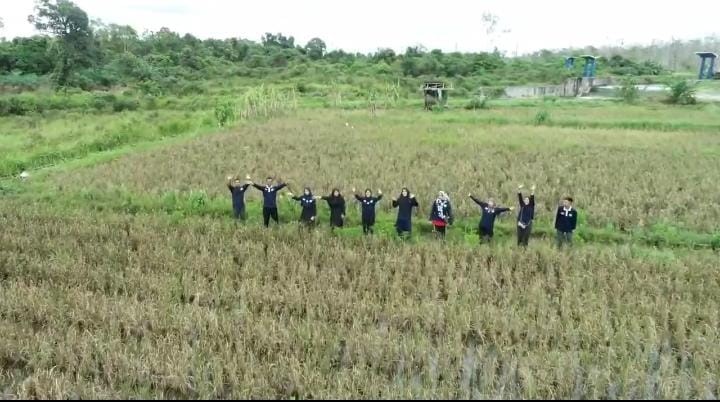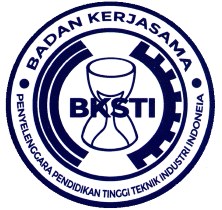Empowering Tourism Awareness Group Based on Sapta Pesona Concept to Actualize Agro-Tourism Villages in West Bangka
DOI:
https://doi.org/10.12928/spekta.v4i1.7613Keywords:
Agro-tourism, Sapta Pesona, Drone, Tourism Awareness GroupAbstract
Background: To be financially independent village seems to be a must to support the local economic freedom. Tourism becomes one among some promising sectors. However, the low level of local understanding towards the concept of agro-tourism is much needed to support the local government development, especially in Tebing Village, West Bangka.
Contribution: The purpose of this program is to support the actualization of an agro-tourism village based on green rice fields through the formation of a tourism awareness group and counseling on the concept, role and function of it in Tebing village, Sub-district of Kelapa, West Bangka Regency.
Method: The method employed is by assisting, mapping and giving a lecture on the concept of tourism awareness groups to actualize the agro-tourism village in Tebing Village, West Bangka.
Results: The result is proved by the formation of a tourism awareness group (Pokdarwis) in Tebing village. Besides, the growth of awareness and understanding related to the Sapta Pesona was well comprehend as qualitatively evaluated by interviewing the community. Finally, the mapping process of the location of agro-tourism was done using DJI Phantom 4 Pro.
Conclusion: Existing natural resources can be utilized to increase income financially through agro-tourism villages. In addition, the happiness index can also be increased by the presence of green open space or agro-tourism nearby as a rest area from Pangkalpinang to Muntok or vice versa, as the village is located in the main route of it. Finally, this service still requires further assistance until the agro-tourism village can be established and support the village's independent income and the welfare of the local community
References
M. A. Cholik, “The Development Of Tourism Industry In Indonesia : Current Problems And Challenges,” Eur. J. Res. Reflect. Manag. Sci., vol. 5, no. 1, 2017, Accessed: Feb. 02, 2023. [Online]. Available: www.idpublications.org.
I. Gusti et al., “Kajian analisis biaya dan manfaat (cost-benefit analysis) kawasan agrowisata di Indonesia,” AGROMIX, vol. 11, no. 2, pp. 189–201, Aug. 2020, doi: 10.35891/AGX.V11I2.1919.
L. Mura and A. Ključnikov, “Small Businesses In Rural Tourism And Agro Tourism: Study From Slovakia,” Sociol., vol. 11, no. 3, 2018, doi: 10.14254/2071.
S. Sathe and M. Randhave, “Agro-tourism : A sustainable tourism development in maharashtra - A case study of village inn agro tourism. (Wardha),” 2019, Accessed: Feb. 02, 2023. [Online]. Available: http://localhost:8080/xmlui/handle/123456789/8434.
L. V. Evgrafova, A. Z. Ismailova, and V. L. Kalinichev, “Agrotourism as a factor of sustainable rural development,” IOP Conf. Ser. Earth Environ. Sci., vol. 421, no. 2, p. 022058, Jan. 2020, doi: 10.1088/1755-1315/421/2/022058.
A. Wang, “Research on the Development of Smart Rural Tourism in Shandong Province in the Era of Internet,” J. Phys. Conf. Ser., vol. 1575, no. 1, Jul. 2020, doi: 10.1088/1742-6596/1575/1/012052.
J. He and Z. Wang, “On Sustainable Development Strategy of Rural Tourism in Jiangxi Province,” IOP Conf. Ser. Earth Environ. Sci., vol. 440, no. 5, Mar. 2020, doi: 10.1088/1755-1315/440/5/052094.
Z. Chen, “Research on Ecological Rural Tourism Development Based on Green Environmental Protection Model,” IOP Conf. Ser. Earth Environ. Sci., vol. 769, no. 2, May 2021, doi: 10.1088/1755-1315/769/2/022048.
I. Ketut Sardiana, “Journal of Indonesian Tourism and Development Studies The Study of Development of Urban Farming Agrotourism Subak-Irrigation-Based In Sanur Tourism Area, Denpasar City, Bali,” doi: 10.21776/ub.jitode.2018.006.01.05.
BPS, “Badan Pusat Statistik Kabupaten Bangka Barat,” 2023. https://bangkabaratkab.bps.go.id/ (accessed Mar. 15, 2023).
S. Joshi, M. Sharma, and R. K. Singh, “Performance Evaluation of Agro-tourism Clusters using AHP–TOPSIS),” J. Oper. Strateg. Plan., vol. 3, no. 1, pp. 7–30, 2020, doi: 10.1177/2516600X20928646.
A. G. Zainal, D. Kagungan, Y. Neta, R. Rudy, and H. Yanfika, “Development Of Tourism Villages And Strengthening The Role of Tourism Awareness Groups Based on Heptahelix of Millennials Of Agrotourism Model: New Ideas For The Development Of Pandemic-Era Tourism Villages,” E-Amal J. Pengabdi. Kpd. Masy., vol. 2, no. 3, pp. 1627–1636, Aug. 2022, doi: 10.47492/EAMAL.V2I3.2005.
A. A. Tambunan, R. Sibarani, and S. Asmara, “The Role of Youth in the Development of Cultural Tourism in Tipang Village, Baktiraja District, Humbang Hasundutan Regency,” doi: 10.33258/birci.v4i1.1544.
N. T. P. Lan and H. N. M. Chau, “Collaboration in Agrotourism Development - The Role of Local Government in Yeongdong County, Chungcheongbuk Province, Korea,” 사회과학연구, vol. 36, pp. 25–55, 2020, Accessed: Feb. 02, 2023. [Online]. Available: https://www.dbpia.co.kr/journal/articleDetail?nodeId=NODE10521069.
I. W. Budiasa and I. G. A. A. Ambarawati, “Community based agro-tourism as an innovative integrated farming system development model towards sustainable agriculture and tourism in Bali.,” J. ISSAAS (International Soc. Southeast Asian Agric. Sci., vol. 20, no. 1, pp. 29–40, 2014.
A. Septio, T. Karyani, and E. Djuwendah, “Visitors Perception About The Sapta Pesona Implementation In Kampung Flory Sleman Yogyakarta,” JBHOST, vol. 02, pp. 307–317, 2019, doi: 10.22334/jbhost.v5i2.
K. Hidayawati, “The Strategy For The Development Of Kampung Labu Madu Agrotourism In Besuk Hamlet, Toyoresmi Village, Ngasem District, Kediri Regency, East Java Province, Indonesia,” Agrisocionomics J. Sos. Ekon. Pertan., vol. 5, no. 1, pp. 1–10, Jun. 2021, doi: 10.14710/AGRISOCIONOMICS.V5I1.5446.
T. Topowijono and S. Supriono, “Analysis of Sapta Pesona (Seven Enchantments) Implementation in Tourism Village: Study at Pujon Kidul Tourism Village of Malang Regency, Indonesia,” Proc. Vor. State Univ. Eng. Technol., vol. 80, no. 2, pp. 458–463, Oct. 2018, doi: 10.20914/2310-1202-2018-2-458-463.
P. Kunasekaran, N. Fuza, E. Nor, K. E. Hassan, and S. Ramachandran, “Factors Influencing Perceptions Of Local Community On ‘Kelulut’ Honey As Agrotourism Product,” Int. J. Bus. Soc., vol. 19, no. 1, pp. 66–78, 2018.
P. Saroyo and G. T. Mulyati, “Analysis of Prospect of Agro-tourism Attractiveness Based on Location Characteristics,” Agric. Agric. Sci. Procedia, vol. 3, pp. 72–77, Jan. 2015, doi: 10.1016/J.AASPRO.2015.01.016.
R. Astuti, R. L. R. Silalahi, and G. D. P. Wijaya, “Marketing Strategy Based on Marketing Mix Influence on Purchasing Decisions of Malang Apples Consumers at Giant Olympic Garden Mall (MOG), Malang City, East Java Province, Indonesia,” Agric. Agric. Sci. Procedia, vol. 3, pp. 67–71, 2015, doi: 10.1016/j.aaspro.2015.01.015.
M. A. Sutiarso, K. T. P. Arcana, and N. A. Suprapto, “Local Institutions and Social Capital for Agrotourism Development: A Case Study in Sanda Village, Tabanan-Bali,” Mar. 2021, doi: 10.4108/EAI.12-12-2020.2304966.
H. Jocom, D. Setiawan, I. Andesta, and A. K. Dewi, “The Dynamics of Tourism Development: Study Case Tourism Attributes in Penyengat Island,” Int. J. Appl. Sci. Tour. Events, vol. 5, no. 2, pp. 107–120, Dec. 2021, doi: 10.31940/IJASTE.V5I2.107-120.
S. Khanal and M. Shrestha, “Agro-tourism: Prospects, importance, destinations and challenges in Nepal,” Arch. Agric. Environ. Sci., vol. 4, no. 4, pp. 464–471, 2019, doi: 10.26832/24566632.2019.0404013.
N. Jafaruddin, T. I. Noor, and T. Karyani, “Variables Influencing the Potency of Community Based Coffee Agro-Tourism in Mount Galunggung, Tasikmalaya, Indonesia,” Pelita Perkeb. (a Coffee Cocoa Res. Journal), vol. 36, no. 3, pp. 267–276, Dec. 2020, doi: 10.22302/ICCRI.JUR.PELITAPERKEBUNAN.V36I3.454.
K. Brščić, “The Role Of Hospitality In Agrotourism,” 2012, doi: 10.1016/j.jbusres.2011.09.018.
K. Thirumaran, M. X. Dam, and C. M. Thirumaran, “Integrating Souvenirs with Tourism Development: Vietnam’s Challenges,” http://dx.doi.org/10.1080/21568316.2013.839471, vol. 11, no. 1, pp. 57–67, Jan. 2014, doi: 10.1080/21568316.2013.839471.
D. L. Hume, “Tourism art and souvenirs: The material culture of tourism,” Tour. Art Souvenirs Mater. Cult. Tour., pp. 1–197, Oct. 2013, doi: 10.4324/9780203771488/TOURISM-ART-SOUVENIRS-DAVID-HUME.
T. Napierała, P. Tobiasz-Lis, and M. Wójcik, Drones in Tourism. Edward Elgar Publishing, 2022.
S. Ilkhanizadeh, M. Golabi, S. Hesami, and H. Rjoub, “The Potential Use of Drones for Tourism in Crises: A Facility Location Analysis Perspective,” J. Risk Financ. Manag. 2020, Vol. 13, Page 246, vol. 13, no. 10, p. 246, Oct. 2020, doi: 10.3390/JRFM13100246.
S. Uribe-Montesdeoca, H. Arias-Flores, C. Ramos-Galarza, and J. Jadán-Guerrero, “Using Drones for Tourism: Exploring Exciting Places in Ecuador,” pp. 786–791, 2021, doi: 10.1007/978-3-030-68017-6_117.
L. Ruhanen, “Local government: Facilitator or inhibitor of sustainable tourism development?,” J. Sustain. Tour., vol. 21, no. 1, pp. 80–98, Jan. 2013, doi: 10.1080/09669582.2012.680463.
M. Kubickova and J. M. Campbell, “The role of government in agro-tourism development: a top-down bottom-up approach,” https://doi.org/10.1080/13683500.2018.1551338, vol. 23, no. 5, pp. 587–604, Mar. 2018, doi: 10.1080/13683500.2018.1551338.

Downloads
Published
How to Cite
Issue
Section
License
Copyright (c) 2023 Haiyudi Haiyudi, Maulana Arif, Teng Teu

This work is licensed under a Creative Commons Attribution-ShareAlike 4.0 International License.
Authors who publish with SPEKTA (Jurnal Pengabdian Kepada Masyarakat: Teknologi dan Aplikasi) agree to the following terms:
- Authors retain copyright and grant the journal the right of first publication with the work simultaneously licensed under a Creative Commons Attribution License (CC BY-SA 4.0) that allows others to share the work with an acknowledgment of the work's authorship and initial publication in this journal.
- Authors are able to enter into separate, additional contractual arrangements for the non-exclusive distribution of the journal's published version of the work (e.g., post it to an institutional repository or publish it in a book), with an acknowledgment of its initial publication in this journal.
- Authors are permitted and encouraged to post their work online (e.g., in institutional repositories or on their website) prior to and during the submission process, as it can lead to productive exchanges, as well as earlier and greater citation of published work.

This work is licensed under a Creative Commons Attribution-ShareAlike 4.0 International License.

 Scopus ID:
Scopus ID: 










